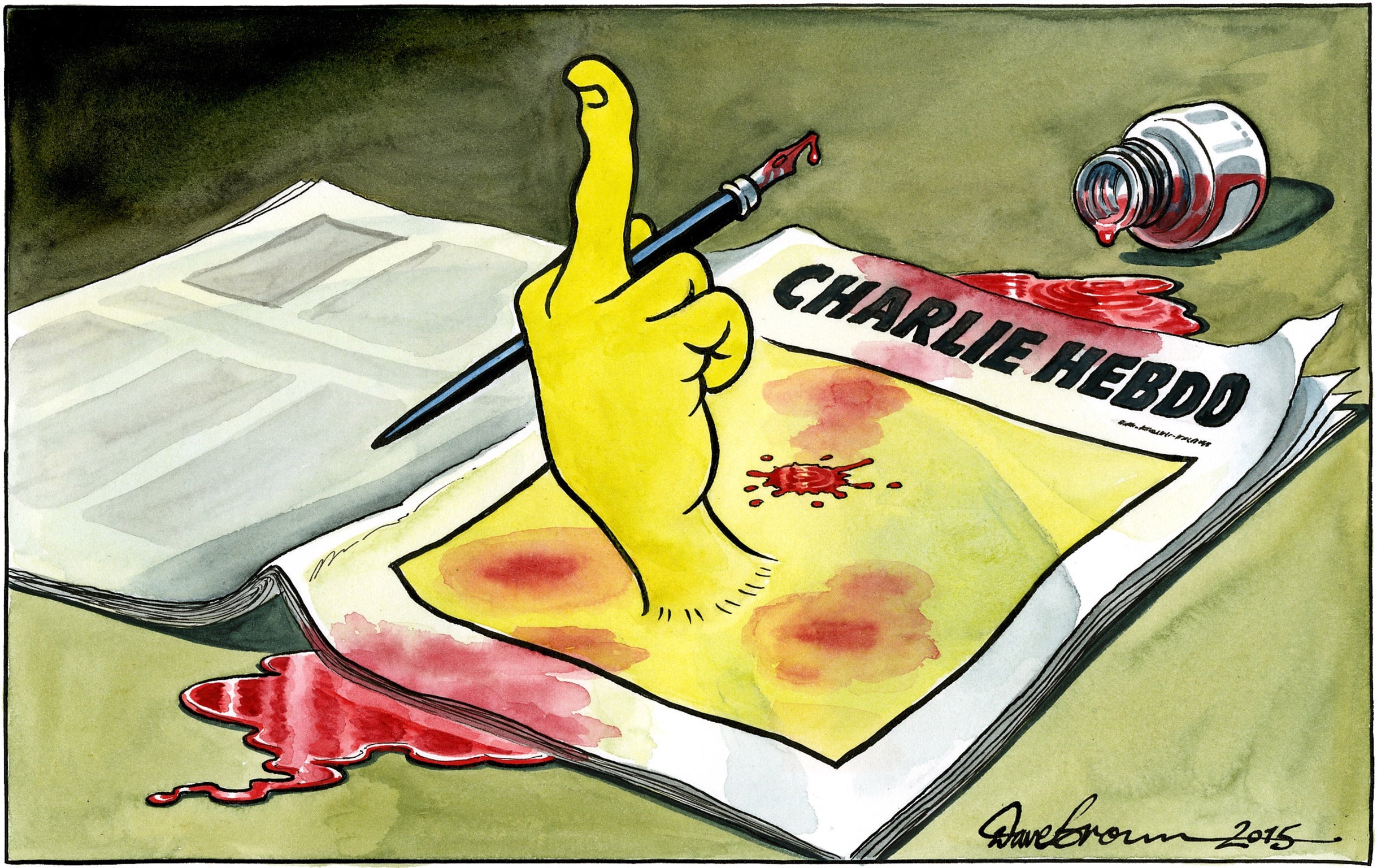The murder of Charlie Hebdo staff is an assault on freedom of expression. All organs of the press must resist it
It would be misguided to paint this as the product of a volcanic clash of civilisations

Your support helps us to tell the story
From reproductive rights to climate change to Big Tech, The Independent is on the ground when the story is developing. Whether it's investigating the financials of Elon Musk's pro-Trump PAC or producing our latest documentary, 'The A Word', which shines a light on the American women fighting for reproductive rights, we know how important it is to parse out the facts from the messaging.
At such a critical moment in US history, we need reporters on the ground. Your donation allows us to keep sending journalists to speak to both sides of the story.
The Independent is trusted by Americans across the entire political spectrum. And unlike many other quality news outlets, we choose not to lock Americans out of our reporting and analysis with paywalls. We believe quality journalism should be available to everyone, paid for by those who can afford it.
Your support makes all the difference.Even as first reports emerged from Paris yesterday morning – horrified, confused and at a loss – the intention of the masked gunmen could not have been more clear. The attack on Charlie Hebdo’s offices used the muzzles of Kalashnikovs to attempt a different kind of muzzling: one that would chill the principle of freedom of speech that underpins Western societies, France perhaps more than any other.
Ten staff of the satirical magazine were murdered. The dead included names – Charb, Cabu, Tignous – that signal irreverence, joie de vivre and humour to an audience of 45,000 at the lowest count. In life, week after week, these cartoonists and the Charlie Hebdo staff displayed a distaste for the grandiose; in death, it would not be an exaggeration to call them martyrs.
So, it falls on all organs of the press – in the Arab world as much as in the West – to treat them as such; to honour the stance they took as the most daring of all publishers in Europe, even if the content they put out could be, as with the cartoons of Mohamed in 2011, deemed offensive. To offend was their right. They did so, liberally, but equitably too: the Charlie Hebdo treatment was applied to Catholicism and Judaism as well as Islam. With the rise of Islamist terrorist groups and attacks on newspaper offices – including the 2011 firebombing of the Hebdo office – other publications chose to tread carefully around Muslim sensitivities.
Despite the warnings of police, Charlie Hebdo did not. Its last tweet posted before the attack features a spoof message from the leader of Isis (which calls itself the Islamic State), Abu al-Baghdadi. Here, an obvious point bears repetition: neither Hebdo’s editors nor its staff hold an ounce of responsibility for “provoking” the assassins, as has been suggested in some quarters. There can be no rhyme, reason or righteousness in murdering civilians. From the 1989 fatwa on Salman Rushdie to that issued on Geert Wilders, the Islamophobic Dutch politician, the cry of “death to blasphemers” has no place in the modern world.
The debate on integration will now surge through French public life. Video clips show a gunman shouting “Allahu Akbar”; one survivor of the attack said the terrorists spoke fluent French and claimed to be members of al-Qaeda. The Republic’s strict form of secularism, known as laïcité, has long rubbed up against the Islamic faith of migrants from North Africa and the Middle East, with Muslims now accounting for 5 to 10 per cent of France’s population – the highest level in Western Europe. The 2004 ban on wearing the hijab (and Christian cross) in schools showed the Republic unwilling, like Hebdo itself, to compromise its principles in deference to religion.
Yet it would be misguided to paint such attacks as the product of some volcanic clash of civilisations. Broadly, in fact, the state’s attempt to foster integration has met with success: studies show that French Muslims identify with, and participate in, their nation to a striking degree. If there is a significant demographic pulling against harmony, it is to be found among the native population, led by the Front National (FN). Marine le Pen, the FN’s leader, will surely use the Paris attack to feed an Islamophobic agenda that elides the gap between the murderous barbarism of a tiny few with the peaceful lives of the many. We can expect no mention of the Islamic leaders who raced to the scene of the attack yesterday to pour condemnation upon it, or the thousands more who offered condolences online.
That is not to deny or diminish the presence of a worrying Islamic radicalism within France, as exists in the UK. It is to say that those who kill are men apart, a matter to concern the intelligence services, not citizens who would otherwise live as neighbours. After the Charlie Hebdo offices were first attacked back in 2011, Charb said it was not French Muslims who were to blame, but “idiot extremists”. It is a sentiment as right now as it was then.
Join our commenting forum
Join thought-provoking conversations, follow other Independent readers and see their replies
Comments